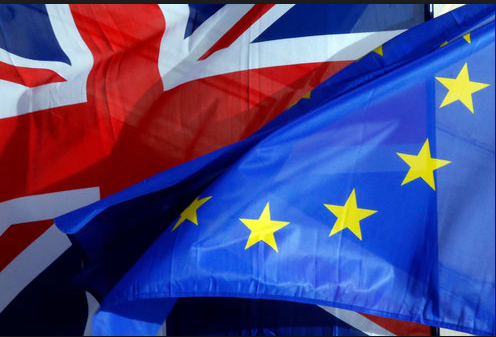
On June 23, United Kingdom (U.K.) held a referendum to decide if the country will continue to be apart of the European Union (EU). This decision has become known as the “brexit,” an abbreviation for “British exit.” The Prime Minister of Great Britain, David Cameron, promised he would hold a referendum (a general vote by the citizens on a single political question that has been given for a direct decision) if he were to win the 2015 election, considering the UK hasn’t had a say into whether or not they wanted to be apart of the EU since 1975.
Hills’ sophomore, Andrew Melville, moved from the U.K. just under eight years ago. Andrew believes that “as a country we [the U.K.] should have stayed in the EU and that it was a mistake to leave. The reasons being that many companies based in Europe with factories in Britain will now have to pay import duties to bring the goods they have made in Britain back to Europe, this will in turn cause many smaller businesses to lose profits. Another main reason is freedom of travel between Britain and countries in Europe. Now that Britain has left the European union British citizens will now have to show a passport when entering Europe from Great Britain and vise versa from Europe back to Britain.”
Since many of Melville’s family members still live in the U.K., he believes the Brexit will affect how easily him and his family used to be able to travel. Now, with the borders this will become much more difficult for them.
Of age U.K. citizens are able to vote in this referendum. Voting is similar to any electoral vote, in which you go to a polling station and cast your vote. Prime Minister, David Cameron, would like the UK to continue to stay in the EU. However, the UK Independence Party believes the EU holds Britain back, therefore they want the country to leave. Of course, the answer to whether the UK should stay in the EU depends on your perspective.
The EU is within a partnership of 28 European countries created after World War II. It allows both goods and people to travel between these 28 countries, as if they were one large country. 19 countries of the EU cohesively use the euro as their currency. If the UK votes to leave the EU, it will become the first country to ever do so.
The results were announced around 2am (EST) on June 24th and GB has decided to leave the EU. 51.9 percent of voters chose this as opposed to 48.1 percent voting to remain in the EU. Because of this outcome, the Prime minister has announced that he will resign in October.
Both Scotland and Northern Ireland would like to hold their own referendum, to decide if they will leave the United Kingdom, since a majority of their countries voted to stay in the EU.
Strong borders now exist between the countries in the UK. Stocks around the world plunged after this announcement. The cost to transfer American money to British pounds has dropped extremely overnight. As the news continues to develop, more shocking changes may occur.











































